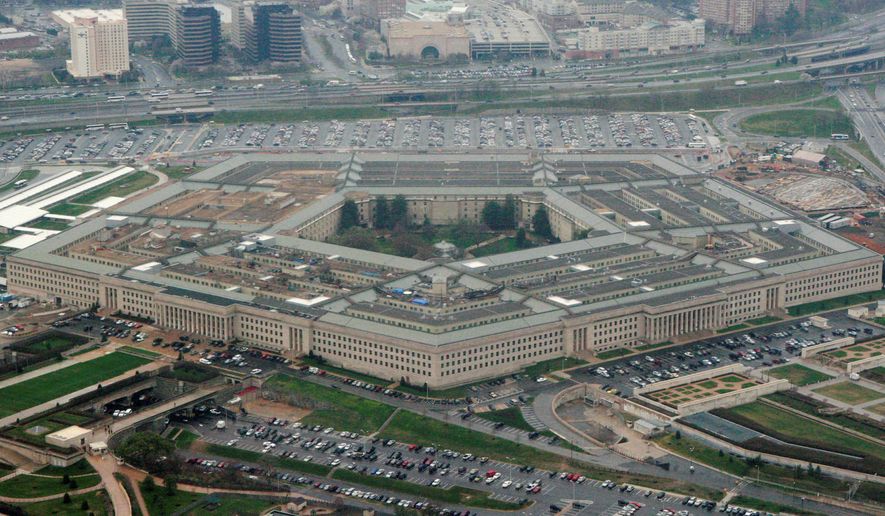As the world watches to see whether and how the executive branch hands off power between President Trump and presumptive President-elect Joseph R. Biden, the legislative branch is wrestling with what to do with a mammoth defense policy bill in the coming lame-duck session.
But Congress races against the clock to approve the must-pass annual National Defense Authorization Act, they could hit a wall if Mr. Trump follows through on his threat to veto the NDAA over language to rename U.S. military bases that honor Confederate leaders.
The provision — which has gathered bipartisan support from lawmakers in both chambers — got a renewed push this week when a group of 37 Senate Democrats wrote a letter urging the leaders of the House and Senate Armed Services Committee to protect the provision to change the names of military bases honoring figures such as Confederate Gen. Braxton Bragg.
Lawmakers are preparing to return to talks next week for the bill, which sets spending targets for the Pentagon but also weighs in on a slew of defense issues, including military pay rates, addressing racism in the ranks, veterans health care and Mr. Trump’s plan to slice the U.S. troop presence in Germany by nearly one-third.
The NDAA has traditionally passed with sizable bipartisan support.
Mr. Biden has said he supports the renaming of such bases, but Mr. Trump shows no signs of backing down following last week’s election.
“The Senate and House strongly supported the inclusion of this requirement by passing their bills with overwhelming, veto-proof, bipartisan majorities,” the Democratic senators wrote. “Renaming these bases does not disrespect our military — it honors the sacrifices and contributions of our service members in a way that better reflects our nation’s diversity and values.”
The House and Senate Armed Services panels are gearing up for late-stage negotiations for the massive $740.5 billion NDAA, and the renaming provision looms as a key sticking point for a deal.
Both the Senate and House versions of the bill include provisions that require the secretary of defense to rename at least 10 military bases that honor leaders of the Confederacy. The Senate bill authorizes the changes to be implemented over a three-year period, while the House would require the changes within one year of the NDAA’s passage.
Senate Armed Services Committee Chairman James Inhofe, Oklahoma Republican, has reportedly moved to dismiss the provision from the crucial legislation behind closed doors.
“The question is whether those majorities would hold … in the event of a presidential veto,” said Seamus Daniels, a defense budget analyst at the Center for Strategic and International Studies. He said that Mr. Trump’s threat could complicate the process, but it’s still likely the NDAA will pass by the end of this year.
“Realistically, given how much bipartisan support there is, for that provision, I think it would be very difficult to actually strip that from the final version of the bill,” he said.
Another fight over defense spending is brewing on Capitol Hill as the Defense Department appropriations bill. A Senate GOP blueprint released Tuesday calls for $696 billion in spending for the fiscal year, including a 3% pay raise for the troops but also $68.7 billion in a “contingency” fund that many lawmakers decry as a “slush fund” allowing the Pentagon to bypass congressional spending caps and shift money to favored programs.
The debate over fund seemingly came to a head last year, when the Pentagon requested a whopping $164 billion for the account — a 140% increase than the amount requested a year earlier — among fears that a large chunk would be spent on construction for Mr. Trump’s controversial border wall.
Pentagon officials have argued that dollars in the defense budget — whether in the main spending plan or the contingency account — all go to support American national security, military readiness, and more recently, implementation of the Trump administration’s 2018 National Defense Strategy.
But specialists argue that’s exactly why it is time to rethink the Pentagon’s budget practices and move the money back into the military’s main budget request.
— Ben Wolfgang contributed to this story.
• Lauren Toms can be reached at lmeier@washingtontimes.com.




Please read our comment policy before commenting.